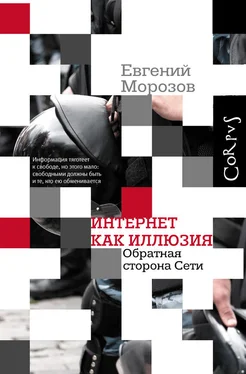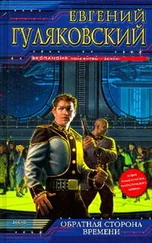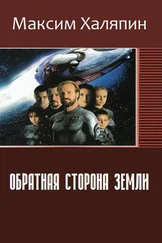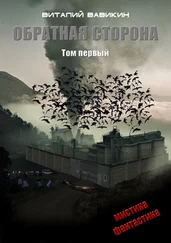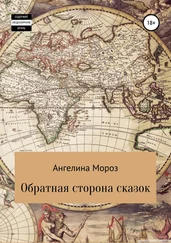Bangre, Habibou Kenya: SMS Text Messages the New Guns of War? // Afrik-News, February 20, 2008. www.afrik-news.com/ article12629.html.
Bezlova, Antoaneta China: Battle with Tradition Spills into Cy-berspace // Inter Press Service, April 7, 2002.
Billig, Michael Banal Nationalism . Thousand Oaks, CA: Sage, 1995. Blum, B. S., and A. Goldfarb Does the Internet Defy the Law of
Gravity? // Journal of International Economics 70, no. 2 (2006): 384–405.
Brenner, N. Beyond State-Centrism? Space, Territoriality, and Geo-graphical Scale in Globalization Studies // Theory and Society 28, no. 1 (1999): 39–78.
Bunt, Gary R. iMuslims: Rewiring the House of Islam . Chapel Hill: University of North Carolina Press, 2009.
Burstein, A. Jefferson’s Rationalizations // William and Mary Quar-terly 57, no. 1 (2000): 183–197.
Cambodia Lambast Google Earth for Locating Temple in Thai Soil // Nation/Asia News Network, February 10, 2010. www.asiaone. com/News/Latest+News/Asia/Story/A1Story20100210–197804. html.
Castells, Manuel The Internet Galaxy: Reflections on the Internet, Business, and Society . Oxford: Oxford University Press, 2003. Chan, B. Imagining the Homeland: The Internet and Diasporic Dis-course of Nationalism // Journal of Communication Inquiry 29, no. 4 (2005): 336.
Craig, G. A. The Professional Diplomat and His Problems, 1919–1939 // World Politics: A Quarterly Journal of International Relations 4, no. 2 (1952): 145–158.
Currion, Paul Better the Devil We Know: Obstacles and Opportuni-ties in Humanitarian GIS // Humanitarian.info, January 25, 2006. www.humanitarian.info/humanitarian-gis/.
Currion, Paul Correcting Crowdsourcing in a Crisis // Humanitarian. info, March 30, 2009. www.humanitarian.info/2009/03/30/correcting-crowdsourcing-in-a-crisis/.
Cyber-Nationalism: The Brave New World of E-hatred // Economist, July 24, 2008.
Dahlberg, L. Rethinking the Fragmentation of the Cyberpublic: From Consensus to Contestation // New Media & Society 9, no. 5 (2007): 827.
Dewan, Shaila Chinese Student in U. S. Is Caught in Confrontation // New York Times, April 17, 2008.
Doppelt, G. What Sort of Ethics Does Technology Require? // Journal of Ethics 5, no. 2 (2001): 155–175.
Edmunds, A., and A. Morris The Problem of Information Over-load in Business Organisations: A Review of the Literature // International Journal of Information Management 20, no. 1 (2000): 17–28.
Eriksen, T. H. Nations in Cyberspace . Short version of the 2006 Er-nest Gellner Lecture , delivered to the ASEN conference, London School of Economics, March 27, 2006.
Eriksson, J., and G. Giacomello Who Controls the Internet? Beyond the Obstinacy or Obsolescence of the State // International Studies Review 11, no. 1 (2009): 205–230.
Eriksson, J., and G. Giacomello The Information Revolution, Security, and International Relations: (IR) Relevant Theory? // In-ternational Political Science Review/ Revue internationale de science politique 27, no. 3 (2006): 221.
Eriksson, J., and M. Rhinard The Internal-External Security Nexus: Notes on an Emerging Research Agenda // Cooperation and Conflict 44, no. 3 (2009): 243.
Evers, C. The Cronulla Race Riots: Safety Maps on an Australian
Beach // South Atlantic Quarterly 107, no. 2 (2008): 411. Feenberg, A. Democratizing Technology: Interests, Codes, Rights //
Journal of Ethics 5, no. 2 (2001): 177–195.
Feenberg, A. Subversive Rationalization: Technology, Power, and Democracy // Inquiry 35, no. 3 (1992): 301–322.
Finel, B. I., and K. M. Lord The Surprising Logic of Transparency //
International Studies Quarterly 43, no. 2 (1999): 325–339. Fukuyama, F. Social Capital and Development: The Coming Agenda //
SAIS review 22, no. 1 (2002): 23–38.
Giridharadas, Anand Ushahidi – Africa’s Gift to Silicon Valley:
How to Track a Crisis // New York Times, March 12, 2010. Glionna, John M. Korea Activists Target Foreign English Teachers //
Los Angeles Times, January 31, 2010.
Goble, Paul Circassians Using Internet to End Soviet-Imposed Divi-sions in Advance of 2010 Census // Georgiandaily.com, January 8, 2010. georgiandaily.com/index.php?option=com_content&task= view&id=16365&Itemid=134.
Goble, Paul Russian Nationalists Now Mapping Location of Immi-grants in Major Cities // Window on Eurasia, June 5, 2008. windo-woneurasia.blogspot.com/2008/06/window-on-eurasia-russian-nationalists.html.
Goble, Paul Will the Internet Integrate the Russian Federation – or Tear It Apart? // Moscow Times, April 16, 2009.
Goggin, G. SMS Riot: Transmitting Race on a Sydney Beach, Decem-ber 2005 // M/C Journal 9, no. 2206 (2008): 28.
Google Admits “Mistake” of Wrong Depiction of Arunachal // The Times of India, August 8, 2009.
GuillÉn, M. F. Is Globalization Civilizing, Destructive or Feeble? A Critique of Five Key Debates in the Social Science Literature // An-nual Review of Sociology 27 (2001): 235–260.
Hancocks, Paula Facebook Gets Caught in Golan Heights Dis-pute // CNN.com, September 21, 2009. edition.cnn.com/2009/ TECH/09/21/israel.syria.facebook/index.html.
Hanson, Elizabeth C. The Information Revolution and World Politics . Lanham, MD: Rowman & Littlefield, 2008.
Harley, Jonathan Race Riots Erupt in Sydney // The 7:30 Report.
Australian Broadcasting Corporation, December 12, 2005. Herrera, G. L. Technology and International Systems // Millennium:
Journal of International Studies 32, no. 3 (2003): 559.
Herold, D. K. Development of a Civic Society Online? Internet Vigi-lantism and State Control in Chinese Cyberspace // Asian Journal of Global Studies 2, no. 1 (2008): 26–37.
Hess, S. Dividing and Conquering the Shop Floor: Uyghur Labour Ex-port and Labour Segmentation in China’s Industrial East // Central Asian Survey 28, no. 4 (2009): 403–416.
Holmes, S. What Russia Teaches Us Now: How Weak States Threaten Freedom // American Prospect (1997): 30–39.
Huang, Annie Taiwanese Offer Ancestors Paper Ferraris, iPhones // Associated Press, April 2, 2010.
India’s Youth Hit the Web to Worship // BBC News, February 8, 2007. Internet Fuels Philippine Election Smear Campaigns // Agence France-
Presse, April 14, 2010.
Kaplan, C. The Biopolitics of Technoculture in the Mumbai Attacks // Theory, Culture & Society 26, nos. 7–8 (2009): 301.
Kapor, Mitchell Where Is the Digital Highway Really Heading? // Wired, August 1993.
Keenan, T. Mobilizing Shame // South Atlantic Quarterly 103, nos. 2–3 (2004): 435.
Keenan, T. Publicity and Indifference (Sarajevo on Television ) // Pub-lications of the Modern Language Association of America 117, no. 1 (2002): 104–116.
Kennan, George F. Somalia, Through a Glass Darkly // New York Times, September 30, 1993.
Kenya Election Violence Witnesses Get Death Threats // BBC News, January 6, 2010.
Kerr, O. S. Enforcing Law Online // University of Chicago Law Re-view 74, no. 2 (2007): 745–760.
Kimmelman, Michael New Weapons in Europe’s Culture Wars // New York Times, January 17, 2010.
Koreans Cyber Attack Japanese Site for Anti-Korean Posts // Yonhap News Agency, March 1, 2010.
Kurlantzick, Josh China’s Next-Generation Nationalists // Los Angeles Times, May 6, 2008.
Читать дальше
Конец ознакомительного отрывка
Купить книгу
